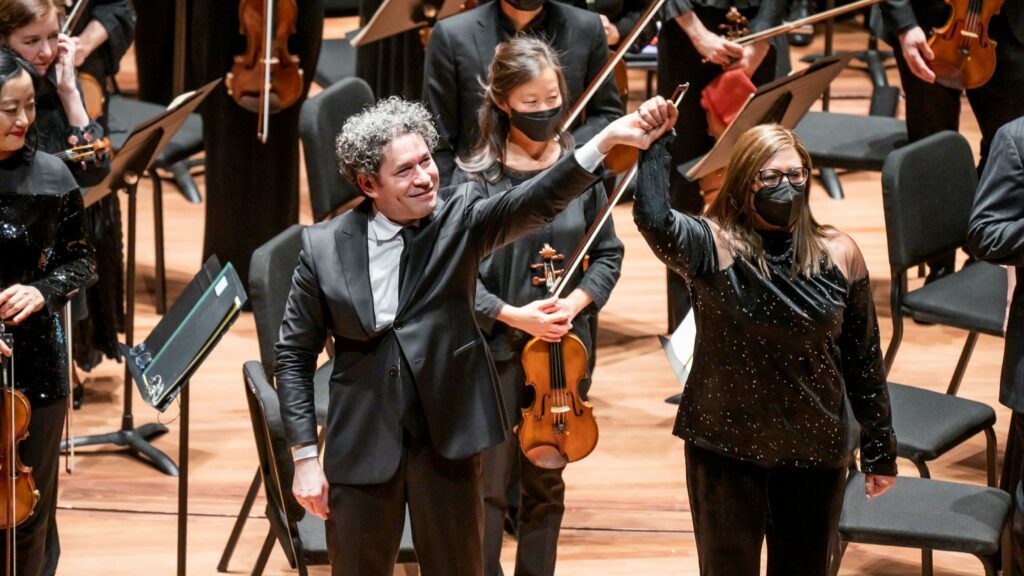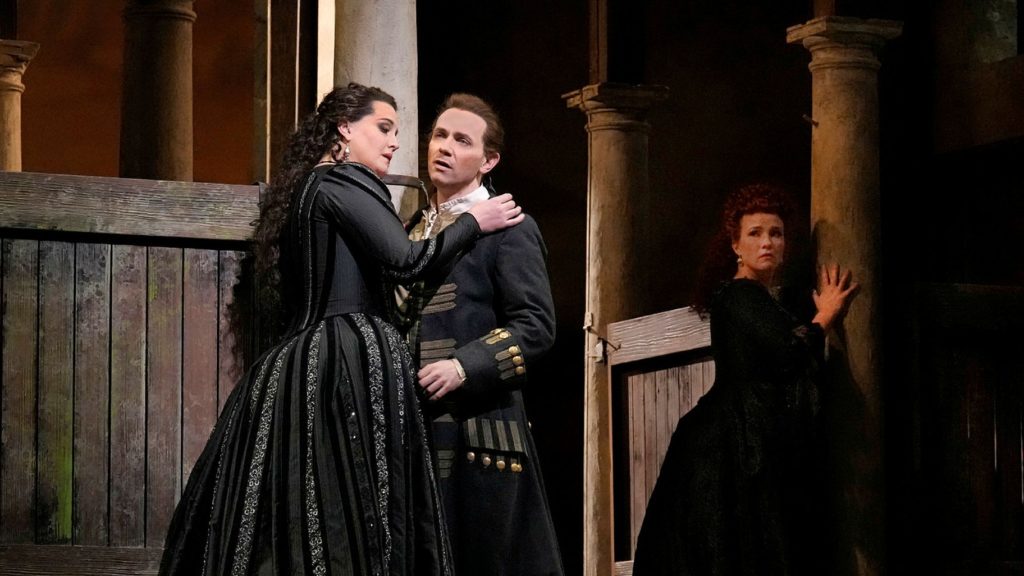VIEWPOINTS – Classical music roundup: Gustavo Dudamel connects to SCHUMANN with the NY Philharmonic & Handel’s RODELINDA returns to the Met
- By drediman
- March 23, 2022
- No Comments
This past week, I paid a visit to the New York Philharmonic and the Metropolitan Opera, who gave a pair of satisfying – if not necessarily transcendent – performances. As per usual, here are my thoughts.

DUDAMEL CONDUCTS SCHUMANN: PART II
New York Philharmonic at the Rose Theater Jazz at Lincoln Center
Closed
This past weekend, superstar Venezuelan conductor Gustavo Dudamel concluded his two week exploration of the works of Robert Schumann, particularly in connection to his wife Clara Wieck Schumann, who was also a notable musician. I attended the second of two concerts (RECOMMENDED) programmed by Dudamel for the New York Philharmonic (collectively, these inquisitive explorations were billed under the name “The Schumann Connection”), which featured the Romantic composer’s Symphony No. 3 and Symphony No. 4, as well as the world premiere of Andreia Pinto Correia’s “Os pássaros da noite (The Birds of Night)”. Opening the evening with psychological calm was Symphony No. 3 (which is subtitled “Rhenish”), the composer’s ode to both Germany’s Rhine River, as well as the Cologne Cathedral, which is built on the banks of the storied river. Dudamel is ideally suited to conducting such spirited compositions, and he did well to bring out both its stately quality and hopeful outlook on life. Sandwiched between the two symphonies was Ms. Correia’s premiere, which dives headlong into Schumann’s deeply disturbed psyche. The 15-minute piece is an unsettling sonic depiction of the composer’s well-documented psychological terrors. Suffice to say, it was a jarring departure from the relatively sunny sentiment of the aforementioned symphony. Concluding the program was Symphony No. 4, which seemed a combination of both of the preceding works. Although the piece is restless and tightly wound – its four movements meld into each other with taut, unnerved energy – Schumann is ultimately determined to keep order. Naturally a charismatic and lively conductor, it was fascinating to see Dudamel stretch his interpretive muscles to convey more psychologically and emotionally dark fare.

RODELINDA
The MetropolitanOpera
In repertory through March 27
Last week, I continued my opera-going adventures by attending a performance of Handel’s Rodelinda (RECOMMENDED) at the Metropolitan Opera. The current run of the opera represents only the second revival of director Stephen Wadsworth’s effectively cinematic – if overly opulent – staging, which was originally presented to be a vehicle for the beloved American soprano Renée Fleming. In summary, it was more or less a satisfying evening, although I did miss the star power that Ms. Fleming brought to the postcard perfect production. Vocally, the evening belonged to countertenor Iestyn Davies, whose velvety song stylings were luscious treats worth cherishing. I was also impressed by South African soprano Elza van den Heever, whose powerful but elegant voice brought honesty and integrity to Handel’s score. Refreshingly, both her vocal and dramatic performances were regal and dramatic without having to resort to melodramatic histrionics. The rest of the cast – which included the likes of countertenor star Anthony Roth Costanzo (who later this spring returns to his star-making turn in the title role of Philip Glass’s Akhnaten) – were more than serviceable, if a tad on the uninspired side (tenor Paul Appleby seemed under-powered the night I attended). However, the real star of the evening in my book was was conductor Harry Bicket, who conducted Handel’s melodic score with stylish verve and sustained vigor. It’s a testament to his leadership and craft that the opera’s relatively smaller orchestra was able to produce a sound that expanded and filled the mammoth auditorium.

 Copyright © 2024
Copyright © 2024
Leave a Reply